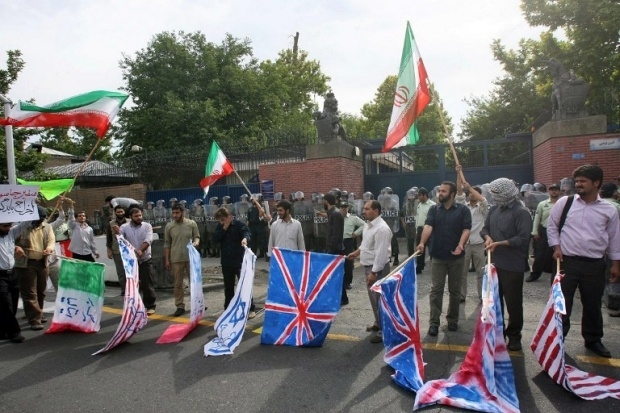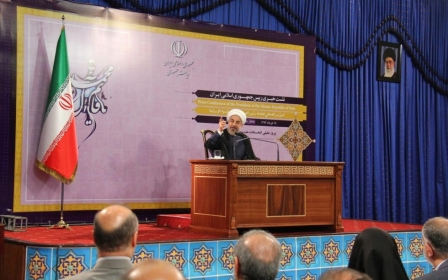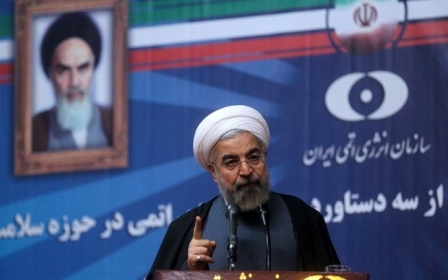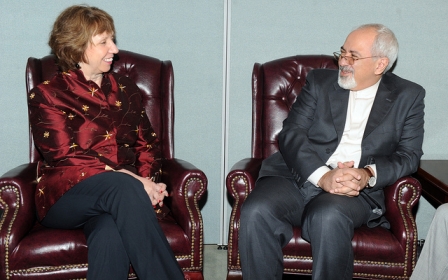UK and Iran: another false start?

The UK government’s announcement earlier this week of its intent to reopen its embassy in Tehran has renewed hopes of improvement in Anglo-Iranian ties. Relations reached an all-time low in November 2012, after Iranian students attacked and briefly occupied parts of the British embassy in Tehran.
British Foreign Secretary William Hague’s announcement of the reopening of the embassy was quickly followed by UK Prime Minister David Cameron’s statement of intent on rebuilding relations on the basis of a “hard headed” and “clear eyed” approach.
To seasoned observers of Anglo-Iranian relations, there is a strong feeling of cynicism and “déjà vu”, as bilateral ties have been extremely volatile and unpredictable since 1979. On numerous occasions in the past, relations have improved only to come crashing down after a misunderstanding and a real or perceived clash of values and interests.
Besides a tortured history and a profound misunderstanding of intentions, British and Iranian officials are divided by vision and policy in the Middle East. Yet, despite this unfavourable background, there is cause for optimism, but only if the two sides make a genuine effort at avoiding prejudice and parochialism.
A difficult past
The United Kingdom and Iran have had troubled relations for more than two hundred years. For the Iranians, the nature and circumstances of Britain’s entry into Iran’s national life is a continuing source of resentment and embarrassment. This occurred in the early and middle of the 19th century during the rule of the Qajar dynasty, when Britain was engaged in a so-called “great game” with Russia over influence in central and western Asia.
In the Iranian historical consciousness, whereas the Russians occupied and destroyed much of Iran’s territorial base and national prestige through brute force, by stark contrast the British penetrated and fatally weakened the country’s ruling structures through exceptional cunning, subtlety and skulduggery. This has given rise to the Iranian proverb of the English decapitation method via “cotton wool” (i.e. extreme two-faced subtlety).
These perceptions were reinforced in the 20th century, when Britain took a series of harsh steps toward Iran, by for instance, ignoring Iranian neutrality during both world wars, and most infamously of all, by opposing nationalist Prime Minister Mohammad Mossadegh in the early 1950s.
By joining forces with the USA to provoke a coup against Mossadegh in 1953, ostensibly to prevent the nationalisation of Iranian oil, the British cemented their role as the masterminds of global politics in the Iranian psyche.
This perception of Britain as a canny and omnipotent power, with a seemingly inexhaustible ability to determine the course of global politics, still persists, albeit to a lesser degree. It is, of course, a delusion, but one with plausible roots in view of the UK’s role in Iran.
Even the late Shah of Iran, Mohammad Reza Pahlavi, was under the spell of this delusion as he periodically lashed out at the UK, especially toward the latter stage of his rule, when he feared the British were conspiring to overthrow him. Similar to Iran’s current rulers, the Shah had a loathing for the British Broadcasting Corporation, which he (like the current rulers) believed was a powerful tool of British foreign policy.
What is striking about the Iranian political establishment throughout the 20th century right to the present day, is their inability to adequately understand the nature of British society and the UK’s conception of its role and presence on the world stage. Above all, the Iranian political elite have failed to adequately appreciate the implications of the UK’s transition from empire to a multicultural society, with a unique Euro-Atlanticist foreign policy.
A more difficult present
Anglo-Iranian relations deteriorated sharply following the Iranian revolution of 1979, as Iran’s new rulers evoked a mix of Islamic and nationalist themes to craft a new world view. The difference with the monarchical regime was, that despite the Shah being instinctively anti-British; nonetheless, Iran’s regional policy was not fundamentally in conflict with British interests. This allowed for a measure of stability.
By contrast, the Islamic Republic has sought to transform Iran into an independent regional power, an ambition which inevitably clashes with the position and interests of established extra-regional powers, in particular the United States and by extension the United Kingdom.
Whilst diplomatic and political relations with the United States were severed in the early days of the revolution, Iranian diplomatic ties with the UK were never fully discontinued, except perhaps for a brief period following the assault on the British embassy in Tehran in November 2012.
Despite the continuity of ties, the two countries have been unable to place their relations on a stable footing, let alone to develop ties to new levels. Most crushing of all, at moments when it appears that relations may be on the threshold of gaining momentum, a seemingly unexpected event brings the whole foundation crashing down. The most dramatic example was the Salman Rushdie affair in 1989. More recent examples relate to the UK’s military presence in Iraq and its enthusiastic role in curbing Iran’s nuclear ambitions.
The cause of all this mistrust and volatility is, in part, rooted in a chequered past, but more importantly, it stems from an almost wilful inability on the part of officials and strategists on both sides, to see beyond propaganda and reductive narratives, and to engage at a more focussed and less emotive level.
To avoid past mistakes, and above all, to prevent another crash in relations, both sides must take important confidence-building measures. Iran can show good faith by toning down anti-British propaganda, especially by state-controlled outlets. And for their part, the British should focus on developing a new approach toward bilateral ties, ties that are sufficiently distant from the US view of Iran.
- Mahan Abedin is an analyst of Iranian politics. He is the director of the research group Dysart Consulting.
The views expressed in this article belong to the author and do not necessarily reflect the editorial policy of Middle East Eye.
Photo credit: Students wave Iranian flag and hold mock Israeli, British and US flags during protest outside the British embassy in 2009 (FARS/AFP)
- Mahan Abedin is an analyst of Iranian politics. He is the director of the research group Dysart Consulting.
The views expressed in this article belong to the author and do not necessarily reflect the editorial policy of Middle East Eye.
Photo credit:
- See more at: http://www.middleeasteye.net/columns/iran-faced-tough-choices-iraq/1951930470#sthash.EEL8oPhf.dpuf- Mahan Abedin is an analyst of Iranian politics. He is the director of the research group Dysart Consulting.
The views expressed in this article belong to the author and do not necessarily reflect the editorial policy of Middle East Eye.
Photo credit:
- See more at: http://www.middleeasteye.net/columns/iran-faced-tough-choices-iraq/1951930470#sthash.EEL8oPhf.dpufNew MEE newsletter: Jerusalem Dispatch
Sign up to get the latest insights and analysis on Israel-Palestine, alongside Turkey Unpacked and other MEE newsletters
Middle East Eye delivers independent and unrivalled coverage and analysis of the Middle East, North Africa and beyond. To learn more about republishing this content and the associated fees, please fill out this form. More about MEE can be found here.





